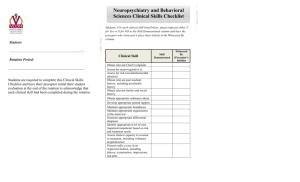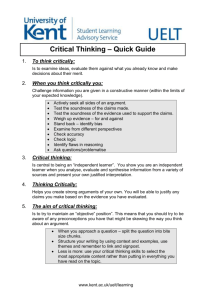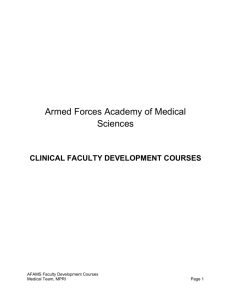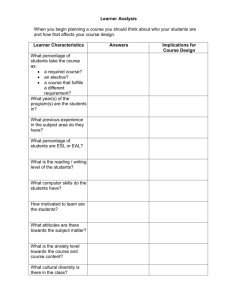Neurocritical Care PGY2 Critical Care Rotation I Clinical Site
advertisement
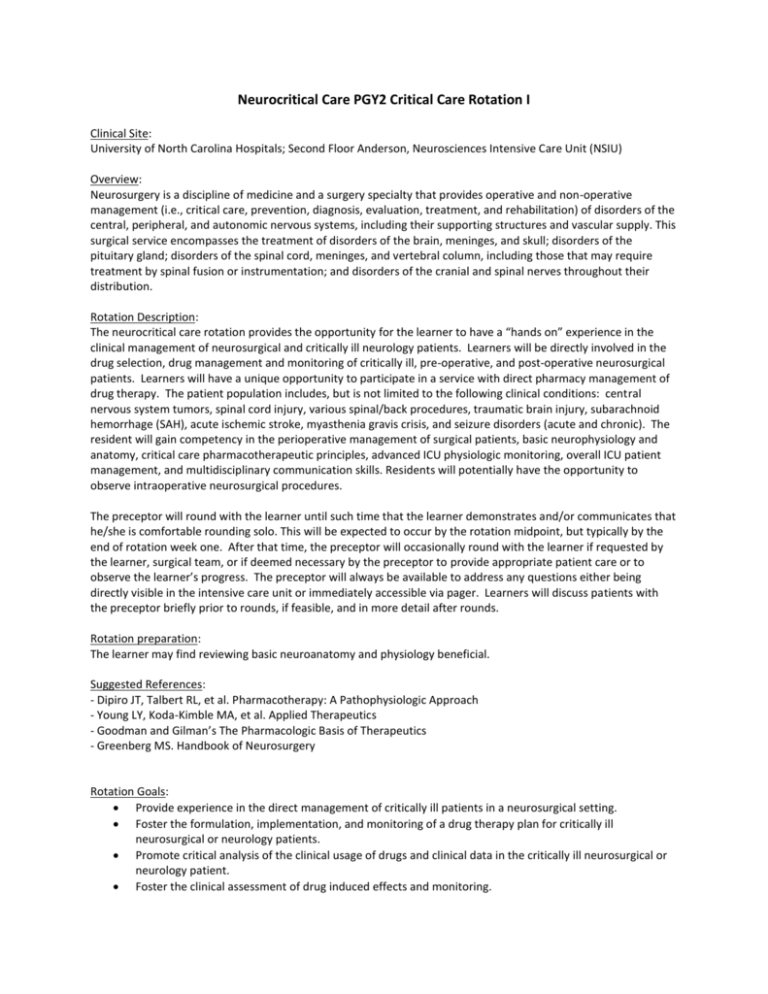
Neurocritical Care PGY2 Critical Care Rotation I Clinical Site: University of North Carolina Hospitals; Second Floor Anderson, Neurosciences Intensive Care Unit (NSIU) Overview: Neurosurgery is a discipline of medicine and a surgery specialty that provides operative and non-operative management (i.e., critical care, prevention, diagnosis, evaluation, treatment, and rehabilitation) of disorders of the central, peripheral, and autonomic nervous systems, including their supporting structures and vascular supply. This surgical service encompasses the treatment of disorders of the brain, meninges, and skull; disorders of the pituitary gland; disorders of the spinal cord, meninges, and vertebral column, including those that may require treatment by spinal fusion or instrumentation; and disorders of the cranial and spinal nerves throughout their distribution. Rotation Description: The neurocritical care rotation provides the opportunity for the learner to have a “hands on” experience in the clinical management of neurosurgical and critically ill neurology patients. Learners will be directly involved in the drug selection, drug management and monitoring of critically ill, pre-operative, and post-operative neurosurgical patients. Learners will have a unique opportunity to participate in a service with direct pharmacy management of drug therapy. The patient population includes, but is not limited to the following clinical conditions: central nervous system tumors, spinal cord injury, various spinal/back procedures, traumatic brain injury, subarachnoid hemorrhage (SAH), acute ischemic stroke, myasthenia gravis crisis, and seizure disorders (acute and chronic). The resident will gain competency in the perioperative management of surgical patients, basic neurophysiology and anatomy, critical care pharmacotherapeutic principles, advanced ICU physiologic monitoring, overall ICU patient management, and multidisciplinary communication skills. Residents will potentially have the opportunity to observe intraoperative neurosurgical procedures. The preceptor will round with the learner until such time that the learner demonstrates and/or communicates that he/she is comfortable rounding solo. This will be expected to occur by the rotation midpoint, but typically by the end of rotation week one. After that time, the preceptor will occasionally round with the learner if requested by the learner, surgical team, or if deemed necessary by the preceptor to provide appropriate patient care or to observe the learner’s progress. The preceptor will always be available to address any questions either being directly visible in the intensive care unit or immediately accessible via pager. Learners will discuss patients with the preceptor briefly prior to rounds, if feasible, and in more detail after rounds. Rotation preparation: The learner may find reviewing basic neuroanatomy and physiology beneficial. Suggested References: - Dipiro JT, Talbert RL, et al. Pharmacotherapy: A Pathophysiologic Approach - Young LY, Koda-Kimble MA, et al. Applied Therapeutics - Goodman and Gilman’s The Pharmacologic Basis of Therapeutics - Greenberg MS. Handbook of Neurosurgery Rotation Goals: Provide experience in the direct management of critically ill patients in a neurosurgical setting. Foster the formulation, implementation, and monitoring of a drug therapy plan for critically ill neurosurgical or neurology patients. Promote critical analysis of the clinical usage of drugs and clinical data in the critically ill neurosurgical or neurology patient. Foster the clinical assessment of drug induced effects and monitoring. Promote self-directed learning through a self-initiated, proactive, evidence based clinical pharmacy practice. Promote literature review, analysis, and clinical application to the critically ill neurosurgical and neurology patients. Improve time management, organization, written and verbal communication skills. Promote professional interaction and educational exchanges within a multidisciplinary team. Develop skills in the clinical drug education of physicians, nurses, and other allied health professionals. Rotation Objectives: Formulate a daily patient problem list and differential diagnosis of active problems, including suggested laboratory, examinations, and planned recommendations required for each patient. Prioritize problems based on severity and patient specific needs. Formulate a daily comprehensive drug therapy management plan for each patient, including any necessary laboratory and patient care orders. Collect and critically assess all clinically relevant data to facilitate monitoring and management of the pharmacist initiated drug therapy plan and directly intervene as required by adjusting appropriate drug, laboratory, and patient care orders for each patient. Utilize patient monitoring forms to document a daily therapeutic plan, interventions, therapeutic goals, monitoring parameters, and expected course. Efficiently collect, analyze, and apply required literature sources for the appropriate clinical management of patients. Effectively communicate the drug therapy management plan to the medical and nursing staff as required to ensure appropriate and effective patient care. Participate in all daily patient care rounds and be an interactive, contributing member of the surgical team and be accessible to the medical staff for patient care related issues. Complete medication discharge teaching for patients that will be discharged home. Present patient care management plans to preceptors before afternoon patient care rounds, or as required for appropriate management. Complete required reading, presentation, and patient care related assignments. ** Rotation objectives, topics, and focus can be flexible and may be somewhat tailored to individual learner interests depending on learner need, desire, and ability. ** Additional Rotation Expectations: Learners are expected to conduct themselves and dress in a professional manner at all times. Additional policies concerning computer access/utilization, School of Pharmacy, and UNC Hospitals Policies and Procedures will be recognized and enforced. Learners are personally responsible for informing the preceptor of any planned absences, and notifying preceptors as soon as possible for any unplanned absences. All information encountered in the care of a patient should be considered confidential. To successfully complete this rotation, learners will be expected to be able to manage an appropriate critically ill patient load at any given time (including reasonable understanding of the disease states, rationales of management, interventions on drug related issues, optimization of pharmacotherapy, and necessary documentation) with minimal direction. In addition, all assigned projects are expected to be completed. PGY2 Required Rotation Activities: Present one formal nursing staff in-service with handout included, topic to be agreed upon by rotation participant and preceptor. Present one formal patient case presentation and corresponding disease state/clinical therapeutics review to the pharmacy preceptors, and concurrent residents and doctor of pharmacy students. Present at least one topic discussion on a critical care topic to concurrent doctor of pharmacy students. Core topics to be discussed during the rotation are listed in the attached sheet and should be addressed throughout the rotation period. Participate in the clinical precepting of PGY1 residents and fourth year pharmacy students. Daily Responsibilities: The learner should make it a high priority to be available for patients and members of the healthcare team to facilitate information and patient care. ? -0730 Pre-round on patients (arrive at whatever time is necessary to prepare for rounds). Obtain laboratory, subjective, objective patient data, prepare pharmacotherapeutic plan for each patient. 0730-0800 Radiology rounds in the “pons” in the NSIU 0800Morning patient work rounds 1400Pharmacy rounds; present and discuss patients with preceptor. Time may change depending on workload. Additionally, each learner will be responsible for completing admission interviews. The learner should also (on a daily basis) review and intervene on medication profiles, review and critically analyze recommendations made by consulting services, report adverse events, as well as complete any assigned readings, patient presentations, and discussion topics. For those patients discharged home, learners will be responsible for providing discharge medication summaries and complete discharge medication teaching. Method of Evaluation: Evaluation of learners will be based on the learning experience objectives detailed above. The preceptor and learner will review the rotation objectives and requirements on day one of the rotation. Feedback will include, but not be limited to, verbal and written midpoint and final evaluations. Written evaluations will be documented in ResiTrak. Evaluations will include feedback from the interdisciplinary team. The learner is encouraged to seek feedback at any time throughout the course of the rotation. The learner is expected to provide feedback to the preceptor regarding any areas of the rotation that could be improved to enhance the rotation, both for the month and in the future, at the midpoint and final evaluations. Interim feedback is welcomed.
